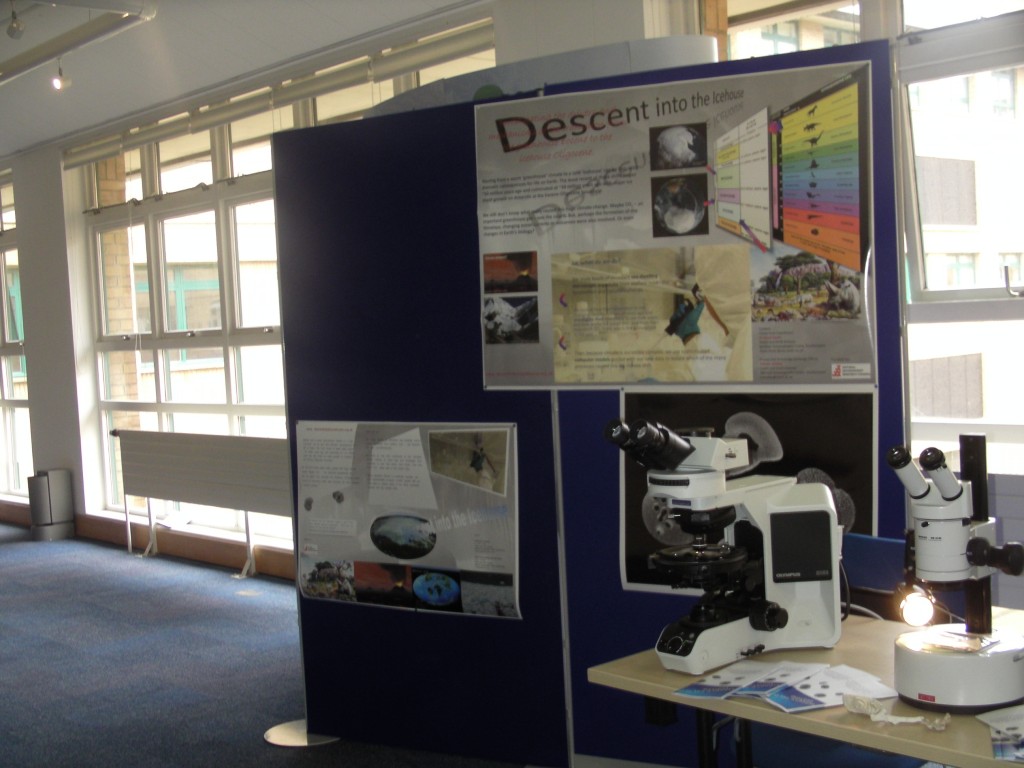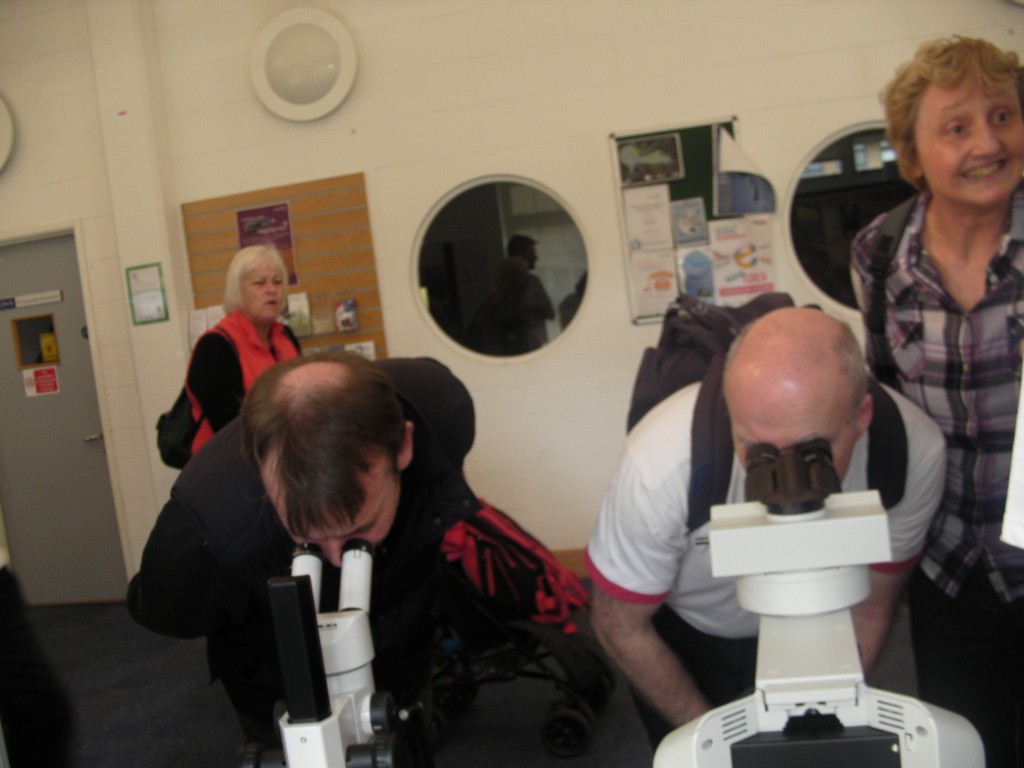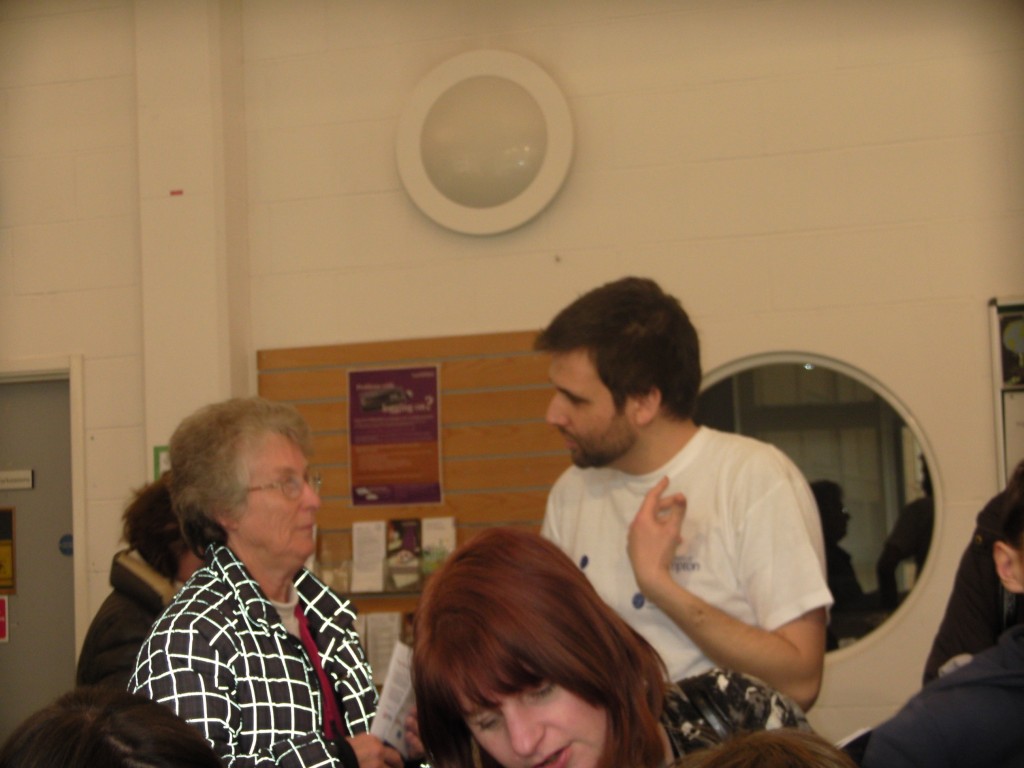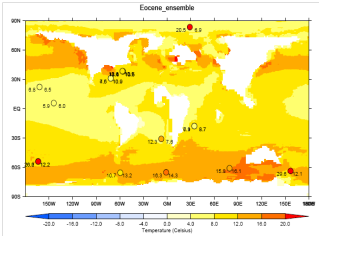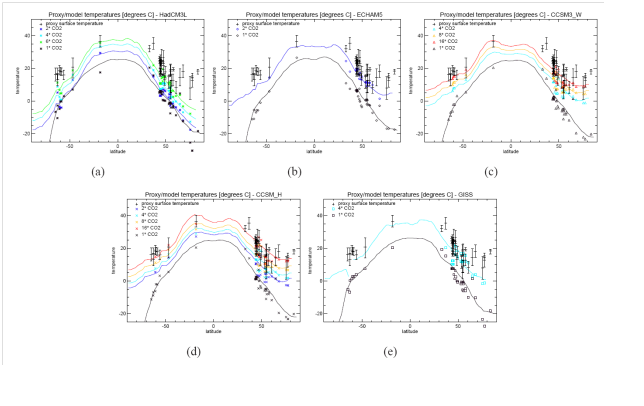We have some exciting news to share!
The recently published paper in Science “The Geological Record of Ocean Acidification”, result of a workshop led by Columbia University’s Lamont-Doherty Earth Observatory and the University of Bristol, has received considerable attention and publicity.
Two “Descent into Icehouse” scientists, Dr Samantha Gibbs and Dr Gavin Foster from the Ocean and Earth Science, National Oceanography Centre, University of Southampton, are co-authors in this study.
The paper made a headline in New Scientist and a blog post at the World’s Bank blog “Development in a Changing Climate“. And if you think this publicity is too much to bear….. Beware: More exciting news are coming.
On 21st March, Energy and Commerce Committee Ranking Member Henry A. Waxman and Energy and Power Subcommittee Ranking Member Bobby L. Rush requested a hearing on the rapid acidifying of oceans due to rising emissions of carbon dioxide.
The full text of the letter is below, also available online here.
March 21, 2012
The Honorable Fred Upton
Chairman
Energy and Commerce Committee
U.S. House of Representatives
2125 Rayburn House Office Building
Washington, D.C. 20515
The Honorable Ed Whitfield
Chairman
Subcommittee on Energy and Power
U.S. House of Representatives
2125 Rayburn House Office Building
Washington, D.C. 20515
Dear Chairman Upton and Chairman Whitfield:
While many are familiar with the scientific evidence that carbon dioxide emissions are responsible for climate change, fewer are aware of carbon dioxide’s serious effects on our oceans. We are writing to urge you to hold a hearing on a new scientific study showing that the ocean is acidifying at an unprecedented rate due to rising emissions of carbon dioxide.
The world’s oceans serve as sponges to absorb excess carbon dioxide. But when carbon dioxide enters the oceans too quickly, oceans can acidify, damaging sensitive marine ecosystems and species. According to the United Nations Environment Program, ocean acidification is “rapidly becoming a critical issue with the potential, if unabated, to affect many species and their ecosystems, pertinently including those associated with human food resources.”
Columbia University, the University of Bristol, and others recently examined the geologic record over the last 300 million years for evidence of significant periods of ocean acidification. The researchers concluded the current rate of ocean acidification is at least ten times faster than at any other point in the Earth’s history, including periods that led to major extinctions.
Professor Andy Ridgwell from the University of Bristol stated that the study suggests that “the current acidification is potentially unparalleled” and “raises the possibility that we are entering an unknown territory of marine ecosystem change.
These findings underscore one of the potentially serious consequences of failing to act to reduce emissions of carbon dioxide. We urge you to schedule a hearing on this matter as soon as possible.
Sincerely,
Henry A. Waxman
Ranking Member
Bobby L. Rush
Ranking Member
Subcommittee on Energy and Power
———————–
Read our Press Release about the study here
.
Celebrating Ocean and Earth day at National Oceanography Centre
It is Saturday, 17th March 2012, 10:30am and a lively, colourful crowd is standing outside the doors of the National Oceanography Centre (NOC), in the docks of Southampton.
It is the Ocean and Earth Day, and as part of this year’s celebration of National Science and Engineering Week, NOC opens its doors to show the public the amazing range, variety and excellence of the work we do at the NOC.
More than 3100 visitors (a record breaker) were treated to an exciting and engaging series of around 63 displays and presentations, focused specifically on children with the aim of inspiring future ocean and earth scientists and engineers.
The Descent into the Icehouse (@IntotheIcehouse) participated in the event with a poster display and information material about our research work. More than 300 children and their parents attended our stand and it was fantastic to see the excitement in the children’s faces discovering through a microscope the tiny world of sea-dwelling organisms, the foraminifers and coccolithophorids.
Our scientists and volunteers were brilliant; they shared their passion about science, inspired the young audience and parents to explore and discover the wonders of nature, and they explained the role of foraminifers and the carbonate cycle in the regulation and evolution of the Earth system.
Eleni Anagnostou, a participant of the “Descent into the Icehouse” and an Ocean and Earth day volunteer, said:
….it was great explaining the life of forams, the evolution of Earth, and climate, and observe kids and adults get caught into a magic world of potential.
And, Migue A. Martínez-Botí, also a participant of the project, added:
I really enjoyed Ocean and Earth Day 2012. It was great to show kids and their families what we do at the University of Southampton and to help them discover another world under the microscope!
…….. a big thank to everyone who gave up their Saturday this weekend to help out with Ocean and Earth Day
Eleni Anagnostou , Miguel Ángel Martínez-Botí, Gavin Foster, Samantha Gibbs and Sarah o’ Dea
Until the next year…..
Sneak preview of EoMIP modelling study
By Dr Dan Lunt
Part of the ‘Descent into the Icehouse‘ project involves assessing the ability of climate models to reproduce past climates.
This involves comparing model results with reconstructions based on various proxy indicators of climate. Up until now, this has been done in a very ad-hoc fashion, with different modelling groups using different proxy data, and different evaluation metrics. The EoMIP (Eocene Modelling Intercomparison Project), led by project member Dan Lunt, aims to address these issues.
The image below shows early results from EoMIP. Some of the climate models, when high enough levels of CO2 are prescribed, can do a very good job of reproducing the proxy data. However, other models are less successful. As part of the Descent into the Icehouse project, we will be aiming to improve the CO2 estimates, so that model simulations which only give good results with unrealistic levels of CO2, can be rejected, and less weight given to their predictions of future climate .
Press Release: The geological record of ocean acidification
The burning of fossil fuels is releasing vast quantities of extra carbon dioxide (CO2) to the Earth’s atmosphere. While a proportion of this stays in the atmosphere, raising atmospheric CO2 levels, around half is removed over time, either to become sequestered in trees and plants or to become absorbed in the ocean. When it dissolves in the ocean, CO2 changes the chemistry of the water, making it more acidic. As a result the oceans are around 30% more acidic today than they were before the industrial revolution – a process known as ocean acidification. In this weeks issue of Science a paper by a team of scientists from various research institutions worldwide, including Dr Samantha Gibbs and Dr Gavin Foster from the Ocean and Earth Science, National Oceanography Centre, University of Southampton, puts this unprecedented change in its geological context.
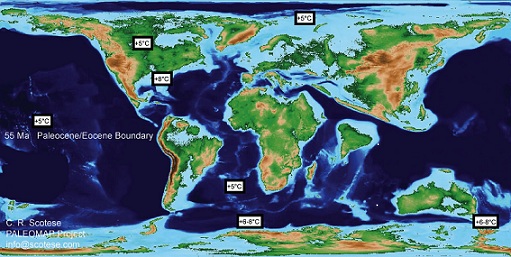
Figure 1: Geographical reconstruction for the PETM from the PALEOMAP Project. Image Credit: (www.scotese.com).
The geological record contains evidence for a variety of long-term global environmental perturbations along with their associated biotic responses, including several well studied natural ocean acidification events. By studying such events in the past we may be able to see how the Earth System has reacted to ocean acidification before and so how it may respond in years to come. In this new study, the result of a workshop led by Columbia University’s Lamont-Doherty Earth Observatory and the University of Bristol, the most commonly cited examples of the last 300 million years are critically examined, including the asteroid impact that made the dinosaurs go extinct and the Permian mass-extinction which wiped out around 95 per cent of all life on Earth. Then, these events were ranked according to their similarity with the modern situation, in terms of the magnitude and rate of carbon emissions.
Dr. Samantha Gibbs, an expert on microscopic plankton fossils, says “all these events provide valuable insights but the massive global warming event 56 million years ago known as the Palaeocene-Eocene thermal maximum clearly stands out. Although not even this event is large enough to parallel the unprecedented CO2 rise that is currently underway”. Dr. Gavin Foster added “However, by studying it, and similar events in some detail, we may still be able to learn something very useful about what levels and rates of acidification have proven particularly dangerous to the Earth System in past”.
Dr Gibbs and Dr Foster are funded by the Royal Society and NERC, as part of a number of UK-wide research initiatives (http://www.oceanacidification.org.uk/ and www.descentintotheicehouse.org.uk), reconstruct the environment of the past and examine the biotic response to wide range of natural climate change events.
For more information on ocean acidification research activities and opportunities at OES and NOCS please contact Athena Drakou [email protected]
Paper:
Links
Follow us on Twitter
Recent Posts
- In the News : What a three-million year fossil record tells us about climate sensitivity
- Past evidence confirms recent IPCC estimates of climate sensitivity
- Crucial new information about how the ice ages came about : PR & Podcast
- 2014 Sino-UK Coevolution of Life and the Planet Summer School
- Past and Future CO2 – Reconstructing atmospheric Carbon Dioxide




